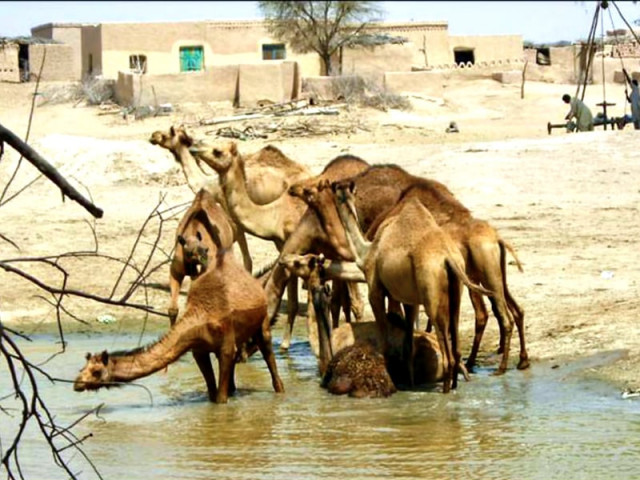Water scarcity: ‘Research on potable water in Cholistan will be completed in a month’
‘IUB, civil society identifying inoperative filtration plants’.

Water scarcity: ‘Research on potable water in Cholistan will be completed in a month’
A research project on drinking water in Cholistan desert undertaken jointly by the Islamia University of Bahawalpur and Al-Sadiq Desert Welfare Organisation will be completed in a month, IUB Vice Chancellor Prof Muhammad Mukhtar said on Monday.
He was speaking at a seminar on water scarcity in Cholistan and Bahawalpur region arranged jointly by the IUB, Civil Society Network of Bahawalpur and Strengthening Participatory Organisation (SPO).
The IUB vice chancellor said findings of the research would be shared with the media.
He lauded the efforts of Bahawalpur’s civil society in assisting the government to address problems faced by people in Cholistan desert. But, he said, there was still a need to work towards solving the drinking water problem in Cholistan. He said far-flung areas of the desert were worst affected.
The vice chancellor said the university was also collaborating with some civil society groups to undertake a survey on water filtration plants in Bahawalpur. The survey was to identify the number of filtration plants that were no longer operational. He said quality of piped water supplied to most areas of Bahawalpur had also declined overtime.
Bahawalpur Assistant Commissioner Capt (retd) Khalid Mehmood said the government was aware of the drinking water shortage in the region. He said filtration plants that were no longer operational would soon be replaced with new ones. He said the government was considering supplying piped water to Cholistan.
He urged upon the civil society to suggest projects that could be undertaken to improve potable water in the region.
He invited the citizens to his office, saying that the doors to his office were always open for suggestions to improve the quality of public utilities.
SPO chief Naseer Memon criticised the signing of Indus Basin Water Treaty with India and said that the decision to give the three eastern rivers (River Ravi, River Beas and River Sutlej) to India was responsible for the crises the region was now facing.
The seminar was followed by the screening of a documentary on drinking water in Cholistan.
Former Federal Parliamentary Secretary Ali Hassan Gillani and Civil Society Network chairman Sheikh Abbas Raza were also present at the occasion.
Published in The Express Tribune, August 7th, 2012.



















COMMENTS
Comments are moderated and generally will be posted if they are on-topic and not abusive.
For more information, please see our Comments FAQ